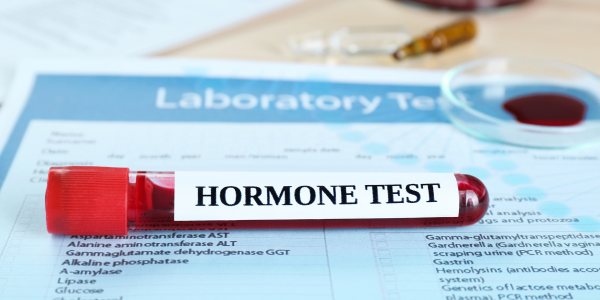

The cells that make up our body are complex and intricate. They contain countless components working to maintain the health and functionality of our bodies. One cell component that stands out is plasmalogens. These components are essential in our bodies, yet often overlooked. But modern research suggests they play a significant role in our health.
What are Plasmalogens?
Plasmalogens are a unique form of phospholipid found in cell membranes and lipid-rich structures like myelin, red blood cells, and lipoproteins. Unlike typical phospholipids, plasmalogens contain a distinctive vinyl ether bond at the sn-1 position of the glycerol backbone. This structure makes them essential for various cellular processes. It’s estimated that plasmalogens constitute up to 20% of the phospholipids in cell membranes.
Plasmalogens are not something we can consume in our diet like other lipids (fats/oils), it is something our bodies have to make.
What Do Plasmalogens Do in the Body?
While plasmalogens play a pivotal role in maintaining cell membrane integrity and function, they’re not just structural components of cell membranes. Plasmalogens support many essential physiological functions in the body. They’re involved in nerve activity, reduce harmful protein buildup, facilitate the release of neurotransmitters in brain synapses, and support cell signaling. They also act as antioxidants, mitigating lipid peroxidation.
Lipid peroxidation is a very important function to understand as it plays a key role in inflammation. It is a mechanism of cell injury by free radicals or chemicals, that affects cellular membranes, lipoproteins, and other molecules that contain lipids, which often precedes with irreversible cell damage thus being an early cause of cell death.
Plasmalogens are predominantly found in the brain, heart, retina, and immune cells and are involved in many cellular functions like:
- Membrane fusion
- Mitochondrial function
- Facilitating cholesterol transport
- Signal transduction
One of their primary roles is to protect cells from oxidative stress by acting as antioxidants with anti-inflammatory properties. The vinyl ether bond in plasmalogens scavenges free radicals. This prevents unwanted chemical reactions within the lipid structure and helps maintain cellular stability.
So with all that said – what role do plasmalogens play in health and disease?
The Brain and Plasmalogens
Plasmalogens are linked to cognitive and neuromuscular function. Low levels of plasmalogens in the brain have been correlated with reduced cognitive function. Furthermore, lower levels of DHA-containing plasmalogens are associated with mild cognitive impairment and neurodegenerative disorders like Alzheimer’s disease and Parkinson’s disease. Evidence suggests that decreased serum plasmalogen levels increase the risk for Alzheimer’s.
Low plasmalogen levels have also been attributed to other mental health conditions like depression and bipolar disorder – not just Alzheimer’s and cognitive decline. In a study completed on bipolar disorder, plasmalogen levels were significantly lower in those with bipolar disorder when compared to the control group.
Nerve Function, Mitochondrial Function, and Plasmalogens
Plasmalogens are also critically involved in nerve function, making them important in diseases like multiple sclerosis and ALS. They are responsible for building and strengthening the protective myelin sheath around nerve cells.
With multiple sclerosis specifically, research has indicated that inflammation and mitochondrial stress are involved in its development. Since plasmalogens are involved in mitochondrial function, the progression of MS can be monitored through serum biomarkers, such as plasmalogens. Mitochondrial dysfunction also plays a role in autism, suggesting that plasmalogens may also play a role.
Cardiovascular Disease, Cancer, and Plasmalogens
In addition to affecting the brain, plasmalogens have been implicated in cardiovascular diseases and certain types of cancer.
How to Test for Plasmalogens
Testing for plasmalogens provides valuable insight into various health conditions, like neurodegenerative diseases like Alzheimer’s, ALS, and multiple sclerosis. Traditionally, in the medical research literature, there are 3 methods for looking at plasmalogen levels in the blood: mass spectrometry, nuclear magnetic resonance (NMR) spectroscopy, and enzyme-linked immunosorbent assay (ELISA).
To date, there is only one test commercially available to look at plasmalogen levels, the Prodrome Sciences Prodrome Scan blood test, created by Dr. Dayan Goodenowe, a long time researcher in the field of plasmalogens. This specialized test uses resonance mass spectrometry technology to accurately measure plasmalogen levels and identify any biochemical deficiencies or imbalances.
Mass spectrometry is an analytical technique that’s highly sensitive and specific. It involves ionizing the plasmalogen molecules and then identifying their mass-to-charge ratios. This allows for the in-depth analysis of plasmalogen molecular structures with high accuracy and precision.
Treating Low Plasmalogen Levels
Once you know plasmalogen levels are low, and which types of plasmalogens are low, you can work on replacing them! Research suggests interventions that improve plasmalogen availability to the body, specifically the nervous system, may help mitigate poor health outcomes like cognitive decline or brain atrophy. Not only that, but recent studies have suggested that plasmalogens enhance memory and reduce neuro-inflammation in the brain. This is especially relevant to those at risk for Alzheimer’s disease or those with neurodegenerative disorders.
Plasmalogen levels decrease with age, especially after age 50, making the supplementation of plasmalogens more relevant as we age. But, it’s never too late to begin supplementation. Preliminary studies have shown improved cognitive functioning with consistent supplementation.
This makes plasmalogen supplementation an important consideration. Boosting this essential cell component can be a cornerstone for supporting overall health.
Plasmalogens and Functional Medicine
Plasmalogens are fundamental to the structure and function of cells. Not only do they serve as building blocks of cell membranes, but they also protect against oxidative stress and facilitate essential cellular processes. Understanding their function and the role they play in disease can open new avenues for therapeutic interventions.
At Arizona Wellness Medicine, we recognize the role plasmalogens play in health and preventing certain diseases. Our team of dedicated and experienced providers look at your complete health picture – including plasmalogens. We believe that in order to improve your health, we need to get to the root of your symptoms. That means taking a look at everything – your diet, lifestyle, health history, medications, and more to create a plan to optimize your health. Contact us to book your first functional medicine appointment here.
Resources:
- Plasmalogens
- Targeted Plasmalogen Supplementation: Effects on Blood Plasmalogens, Oxidative Stress Biomarkers, Cognition, and Mobility in Cognitively Impaired Persons
- Plasmaolgen
- ProdromeSCAN™
- Circulating ethanolamine plasmalogen indices in Alzheimer’s disease: Relation to diagnosis, cognition, and CSF tau
- Plasmalogens inhibit neuroinflammation and promote cognitive function
- Plasmalogens in Human Serum Positively Correlate with High- Density Lipoprotein and Decrease with Aging
- Metabolic dysfunctions in multiple sclerosis: implications as to causation, early detection, and treatment, a case control study
- Altered ethanolamine plasmalogen and phosphatidylethanolamine levels in blood plasma of patients with bipolar disorder
- The Biochemical Basis of Autistic Behavior and Pathology
- Targeted Plasmalogen Supplementation: Effects on Blood Plasmalogens, Oxidative Stress Biomarkers, Cognition, and Mobility in Cognitively Impaired Persons
- Plasmalogen lipids: functional mechanism and their involvement in gastrointestinal cancer
Share:
Monarch Marketing
Social Media
Most Popular Posts
Subscribe To Our Newsletter
Related Posts

New Podcast Episode: My journey into functional medicine + what I’ve learned
I’m excited to share that I recently joined DeLo for Episode 165 of the On the DeLo podcast! In this conversation, we explored my journey

Understanding the Essential Labs for Women on Hormone Replacement Therapy (HRT)
So what are the minimum labs we’re looking at when we do hormone replacement therapy? We obviously want to look at an estrogen level, so

How to figure out the right amount of HRT in women
What about checking lab values when you’re on hormone replacement therapy? I do find it to be helpful, but we also want to consider symptoms.

Did you know there’s a difference between food allergies, sensitivities, and intolerances?
Did you know that there’s a difference between food allergies, food sensitivities and food intolerances? Food allergies, the reactions tend to happen pretty immediately and
